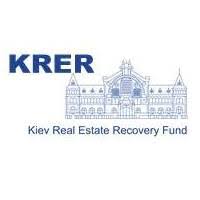
In order to obtain a Missouri real estate license, you need to meet several requirements. You must be at minimum 18 years of age to obtain a Missouri realty license. A test must also be passed. The exam takes approximately four hours to complete and includes both the State- and National portions. There are 40 multiple choice questions for the state section and 100 multiple-choice ones for the national. Score at least seventy-five per cent to pass.
You must also have a clean criminal record in order to be eligible for a Missouri real property license. This background check will verify that you are trustworthy, and that your clients feel safe. Register with the Missouri Automated Criminal History System before you can begin the process to obtain your license. You will need to submit fingerprint-based criminal history checks if you don't have any background reports.
Apart from these requirements, you'll need to complete 72 hour of pre-licensing training and take an exam. These courses can be taken online or in a classroom. Online schools often offer self-paced or live stream courses. These courses are easy to fit into busy schedules. Another option is to enroll in a class on real estate at a local university or college.

Once you have met all requirements, you can take the Missouri Real Estate Salesperson Examination. This test is administered on a computer at the PSI testing center. Once you pass this test you can apply for your license. The exam costs around sixty-two dollars. However, you can take it again for free.
Your final exam will be proctored by ProctorU. The exam will not allow you to access the online course, unlike the state test. The exam is not open to the public. You will still receive your certificate after passing the test.
The type of license that you are applying for may require you to complete additional coursework. A Missouri Real Estate Practice course is not required for licensed agents from other states. All applicants to Missouri's real estate licenses have to complete a 48-hour course in salesperson preparation and a criminal history background screening.
It can be quick and simple to obtain a Missouri real-estate license. You can take real estate classes online from many accredited schools. These classes offer a wealth of support and resources, breaking down complex topics into easily-understandable lessons. Besides helping you get a Missouri real estate license, these classes will also help you maintain your personal brand, which is essential in the competitive real estate industry.

Your record must be clean, as with all licenses. Although a background check is an excellent way to ensure the safety of your clients, it does not prove that you are qualified to license them.
FAQ
Can I buy a house without having a down payment?
Yes! There are programs available that allow people who don't have large amounts of cash to purchase a home. These programs include government-backed mortgages (FHA), VA loans and USDA loans. Check out our website for additional information.
What are the benefits associated with a fixed mortgage rate?
Fixed-rate mortgages allow you to lock in the interest rate throughout the loan's term. This means that you won't have to worry about rising rates. Fixed-rate loans come with lower payments as they are locked in for a specified term.
How much does it cost to replace windows?
Windows replacement can be as expensive as $1,500-$3,000 each. The exact size, style, brand, and cost of all windows replacement will vary depending on what you choose.
How do I calculate my interest rate?
Market conditions influence the market and interest rates can change daily. The average interest rates for the last week were 4.39%. The interest rate is calculated by multiplying the amount of time you are financing with the interest rate. For example: If you finance $200,000 over 20 year at 5% per annum, your interest rates are 0.05 x 20% 1% which equals ten base points.
How much should I save before I buy a home?
It depends on how much time you intend to stay there. It is important to start saving as soon as you can if you intend to stay there for more than five years. You don't have too much to worry about if you plan on moving in the next two years.
What flood insurance do I need?
Flood Insurance protects from flood-related damage. Flood insurance helps protect your belongings and your mortgage payments. Learn more about flood insurance here.
What is a Reverse Mortgage?
Reverse mortgages are a way to borrow funds from your home, without having any equity. It allows you access to your home equity and allow you to live there while drawing down money. There are two types available: FHA (government-insured) and conventional. You must repay the amount borrowed and pay an origination fee for a conventional reverse loan. FHA insurance covers repayments.
Statistics
- Some experts hypothesize that rates will hit five percent by the second half of 2018, but there has been no official confirmation one way or the other. (fortunebuilders.com)
- 10 years ago, homeownership was nearly 70%. (fortunebuilders.com)
- When it came to buying a home in 2015, experts predicted that mortgage rates would surpass five percent, yet interest rates remained below four percent. (fortunebuilders.com)
- This means that all of your housing-related expenses each month do not exceed 43% of your monthly income. (fortunebuilders.com)
- Based on your credit scores and other financial details, your lender offers you a 3.5% interest rate on loan. (investopedia.com)
External Links
How To
How to Manage a Rental Property
Renting your home can be a great way to make extra money, but there's a lot to think about before you start. This article will help you decide whether you want to rent your house and provide tips for managing a rental property.
This is the place to start if you are thinking about renting out your home.
-
What factors should I first consider? You need to assess your finances before renting out your home. If you are in debt, such as mortgage or credit card payments, it may be difficult to pay another person to live in your home while on vacation. Your budget should be reviewed - you may not have enough money to cover your monthly expenses like rent, utilities, insurance, and so on. ), it might not be worth it.
-
How much does it cost for me to rent my house? The cost of renting your home depends on many factors. These include factors such as location, size, condition, and season. Keep in mind that prices will vary depending upon where you live. So don't expect to find the same price everywhere. Rightmove shows that the median market price for renting one-bedroom flats in London is approximately PS1,400 per months. If you were to rent your entire house, this would mean that you would earn approximately PS2,800 per year. Although this is quite a high income, you can probably make a lot more if you rent out a smaller portion of your home.
-
Is it worthwhile? Although there are always risks involved in doing something new, if you can make extra money, why not? It is important to understand your rights and responsibilities before signing anything. It's not enough to be able to spend more time with your loved ones. You'll need to manage maintenance costs, repair and clean up the house. Make sure you've thought through these issues carefully before signing up!
-
Is there any benefit? So now that you know how much it costs to rent out your home and you're confident that it's worth it, you'll need to think about the advantages. Renting out your home can be used for many reasons. You could pay off your debts, save money for the future, take a vacation, or just enjoy a break from everyday life. It's more fun than working every day, regardless of what you choose. And if you plan ahead, you could even turn to rent into a full-time job.
-
How do you find tenants? Once you decide that you want to rent out your property, it is important to properly market it. Start by listing online using websites like Zoopla and Rightmove. You will need to interview potential tenants once they contact you. This will allow you to assess their suitability, and make sure they are financially sound enough to move into your house.
-
What can I do to make sure my home is protected? If you fear that your home will be left empty, you need to ensure your home is protected against theft, damage, or fire. You will need insurance for your home. This can be done through your landlord directly or with an agent. Your landlord will often require you to add them to your policy as an additional insured. This means that they'll pay for damages to your property while you're not there. If you are not registered with UK insurers or if your landlord lives abroad, however, this does not apply. You will need to register with an International Insurer in this instance.
-
Sometimes it can feel as though you don’t have the money to spend all day looking at tenants, especially if there are no other jobs. However, it is important that you advertise your property in the best way possible. It is important to create a professional website and place ads online. You'll also need to prepare a thorough application form and provide references. While some prefer to do all the work themselves, others hire professionals who can handle most of it. In either case, be prepared to answer any questions that may arise during interviews.
-
What should I do after I have found my tenant? If there is a lease, you will need to inform the tenant about any changes such as moving dates. If this is not possible, you may negotiate the length of your stay, deposit, as well as other details. It's important to remember that while you may get paid once the tenancy is complete, you still need to pay for things like utilities, so don't forget to factor this into your budget.
-
How do I collect rent? You will need to verify that your tenant has actually paid the rent when it comes time to collect it. If not, you'll need to remind them of their obligations. You can deduct any outstanding payments from future rents before sending them a final bill. You can call the police if you are having trouble getting hold of your tenant. They will not usually evict someone unless they have a breached the contract. But, they can issue a warrant if necessary.
-
How can I avoid potential problems? Although renting your home is a lucrative venture, it is also important to be safe. You should install smoke alarms and carbon Monoxide detectors. Security cameras are also a good idea. You should also check that your neighbors' permissions allow you to leave your property unlocked at night and that you have adequate insurance. Finally, you should never let strangers into your house, even if they say they're moving in next door.